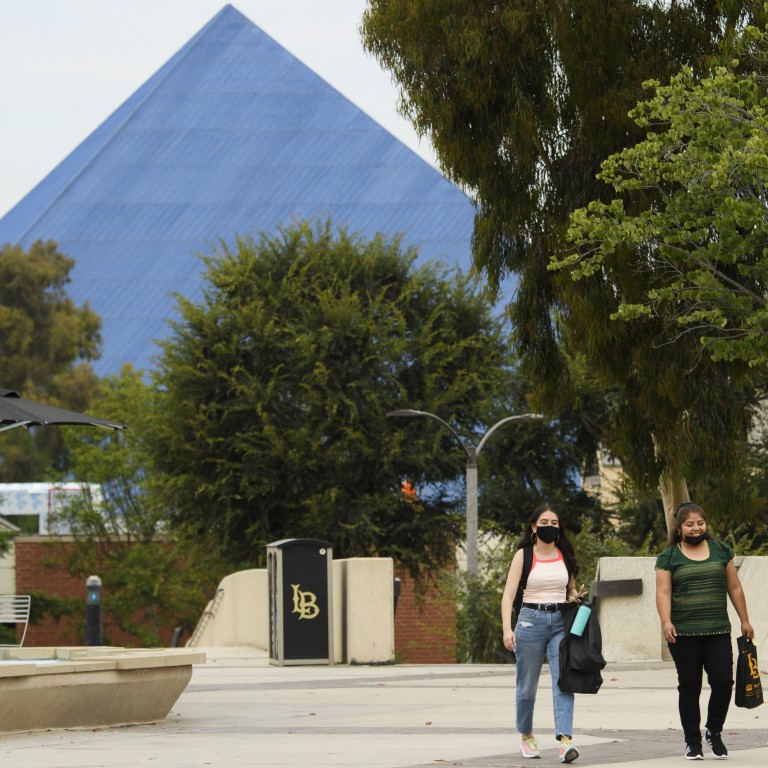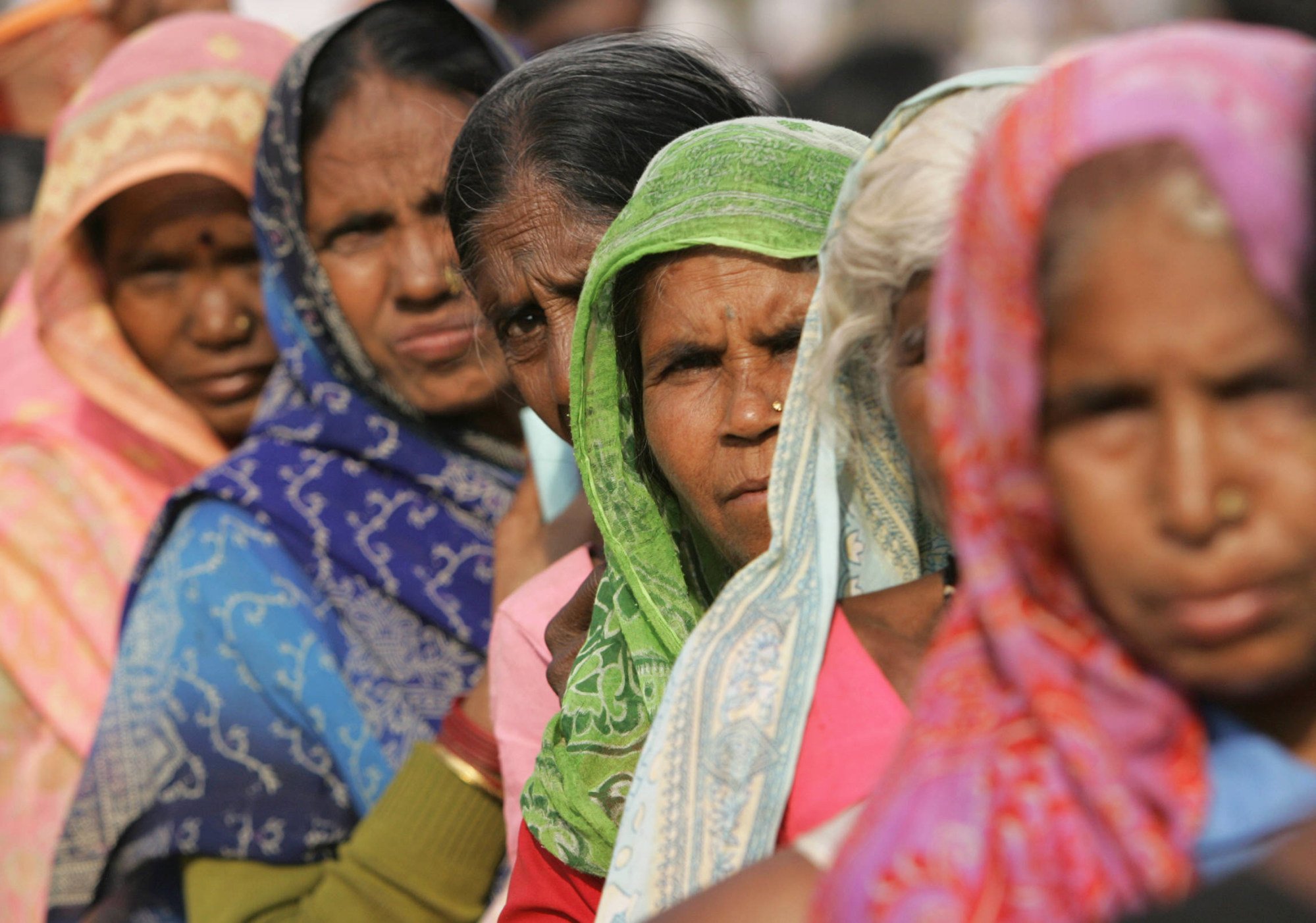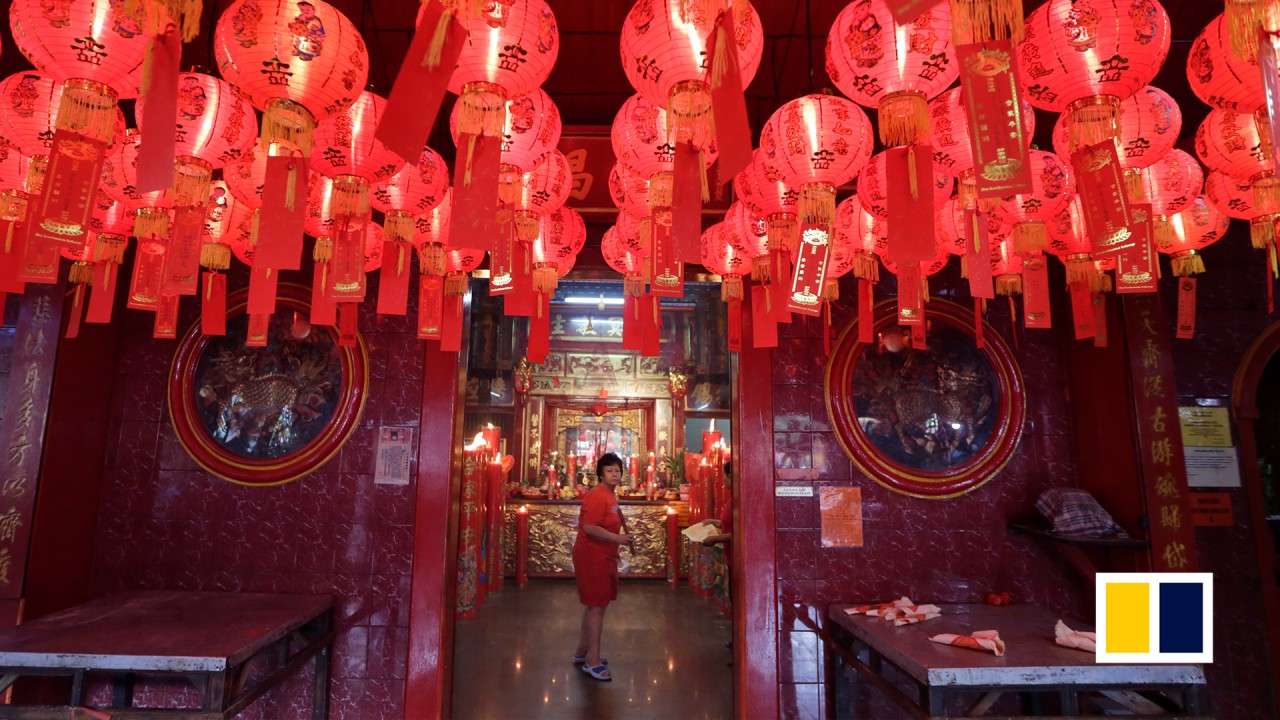
US university’s anti-caste discrimination policy discriminates against Hindus, critics claim
- California State University faces a backlash after bringing in protections against discrimination based on the ancient social hierarchy derived from Hinduism
- While many people, lower caste Dalits among them, have cheered the move, higher class Brahmins and others warn it ‘marks all people of Indian descent as suspect’
For Hindus in South Asia, a person’s social status is determined at birth with those from the Brahmin and Kshatriya communities occupying the highest castes, while Vaishyas, Shudras and Dalits are considered the lowest strata of society.
Caste hierarchies are also prevalent among the Sikh, Muslim, Buddhist and Christian communities in the region but there has been growing attention paid to casteism among Hindu South Asians, including in the US, which is home to 5.4 million people of South Asian descent.
CSU, the public university system of America’s most populous state, has 485,550 students and 55,909 faculty and staff employed in its 23 campuses.
Rebutting the opposition’s letter, over 500 faculty members including 110 from California State University wrote to the university trustees and California faculty association in support of the policy.”
Prem Pariyar, a Nepali Dalit social worker and alumnus of CSU’s East Bay campus, who first advocated for caste protections in the university’s department of social work two years ago, cheered the university’s move.
The policy would not “divide” the South Asian community but unite the diaspora to oppose caste inequity and end centuries of caste violence that continues to take place in South Asian countries. While caste discrimination is illegal, Dalits are still treated as occupying the lowest rung in the social hierarchy. In 2019, India registered more than 45,000 crimes against lower caste people, an increase of 7.3 per cent of cases reported in 2018.
“This policy is not against anyone, rather it is against discrimination itself. It protects everyone, including South Asian Hindus, who support this policy. If they violate this policy and discriminate against their peers and CSU community members they will face consequences. If they try to use their caste privilege and power that they have in India and other South Asian countries, then they deserve to be punished as per the policy,” Pariyar said.
Brahmins don’t know the caste discrimination like racist white Americans don’t know racial discrimination
In a press statement, Praveen Sinha, professor at CSU’s Long Beach campus, said the addition of caste to the policy was a “misguided overreach”. There were sufficient safeguards in existing policies to protect against various forms of discrimination, he said.
Hindu advocacy group, Hindu American Foundation (HAF), which counts CSU faculty and students among its members, said the policy would implicate only specific faculty, given that caste is usually (and falsely) equated only with Hindus, Indians and to a lesser extent South Asians.
Suhag Shukla, executive director of HAF, said in a statement that combating of all discrimination was a shared goal. She previously told This Week in Asia that policies that included caste as a specific class of discrimination would “mark all people of Indian descent as suspect, which in and of itself is discriminatory”.

But Pariyar, who said he was verbally attacked for his anti-caste discrimination advocacy by Indian faculty members of a higher caste, said: “They are utilising their privileged power … Brahmins don’t know the caste discrimination like racist white Americans don’t know racial discrimination.”
In 2018, a survey conducted by US civil rights organisation Equality Labs revealed 25 per cent of Dalits who were interviewed faced physical or verbal abuse due to their caste, although critics said the sample size of 1,500 people did not fully represent the South Asian-American population.
Thenmozhi Soundarajan, executive director of Equality Labs, a Dalit rights organisation, told This Week in Asia that those opposing the updated policy were not used to “seeing Dalit people achieve what they have achieved” and were only “fearmongering” that Hindus would be targeted.
CSU would not back down to respond to their discomfort, she said, adding that the new policy would not impinge on the rights of others.
Soundarajan said the Hindu American Foundation was run by caste privileged people who had a history in working against caste equity. “We do not determine the trajectory of our freedom by those whose policy is shaped by caste denial and fragility. I have empathy for their distress, often equity for the privileged feels like oppression,” she said.
She said this was an opportunity to put their energy into “learning more about caste equity”, and develop self-reflective practices to understand better why the concept of equity made them uncomfortable.
Can a caste census in India help reduce inequality, discrimination?
Pressure on large organisations to protect against caste discrimination has gained ground in recent years, including in California. In 2020, Cisco Systems Inc was sued by California’s Department of Fair Employment and Housing alleging that two of its employees of South Asian origin, who belonged to the highest caste, denied professional opportunities, monetary benefits, and promotions to the lower-caste Dalit employee. Last year, Colby College in Maine added caste to its non-discrimination policy.
The University of California, Davis added caste to its anti-discriminatory policy last year, after receiving complaints from South Asian students and staff. In 2019, the Brandeis University in Massachusetts banned discrimination based on caste. As of now, 30 universities have already made caste a protected category. Soundarajan said the growing movement for caste equity was “transforming” institutions around the country as universities, corporations, and governmental bodies were adding caste in the wake of serious complaints and cases coming from caste-oppressed Americans.

